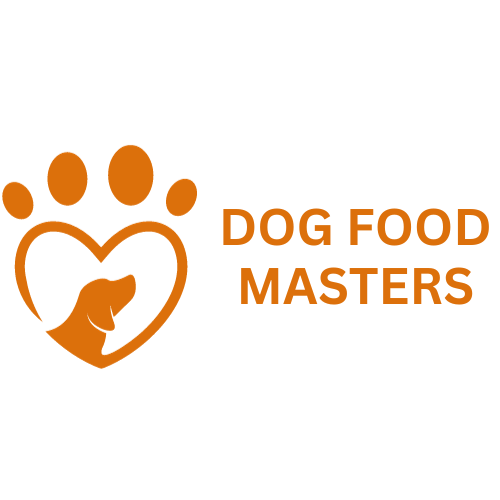Introduction to Dog Food Masters In recent years, the importance of proper nutrition for dogs has gained increasing attention among pet owners. Recognizing the critical role that diet plays in the overall health and wellness of dogs, Dog Food Masters has emerged as a go-to Amazon affiliate website dedicated to disseminating valuable information related to canine nutrition. This platform aims to provide dog owners with thorough analyses of various dog-related topics, emphasizing the significance of informed feeding choices. Dog Food Masters is committed to educating pet owners about the best nutritional practices for their dogs. By offering insightful guides, tips, and in-depth food recommendations, the site empowers individuals to make knowledgeable decisions about their pets’ diets. The mission of Dog Food Masters is rooted in the belief that a well-balanced diet is foundational to a dog’s long-term health. It focuses on presenting scientifically-backed information, expert opinions, and user experiences to enhance the understanding of dog nutrition. Visitors to Dog Food Masters can expect to find an extensive range of resources that cover everything from the nutritional requirements of different dog breeds to an analysis of the best commercially available dog foods. The content emphasizes the idea that choosing the right dog food can significantly affect a pet’s vitality, coat condition, and even behavior. It further highlights the necessity of understanding ingredient labels and nutrition profiles to help dog owners select premium products that suit their pets’ individual needs. In essence, Dog Food Masters serves as a comprehensive resource for dog owners seeking to optimize their pets’ diets. By fostering an atmosphere of learning and exploration, the site remains dedicated to promoting the health and happiness of dogs through informed eating practices. Understanding Your Dog’s Nutritional Needs To ensure optimal health and well-being, it is crucial to recognize that dogs have specific nutritional requirements. These needs vary significantly across different breeds, ages, and life stages. At the core of canine nutrition are macronutrients, which include proteins, fats, and carbohydrates, as well as essential micronutrients such as vitamins and minerals. A balanced diet incorporates all these components, fostering overall health and vitality in dogs. Proteins are essential for growth, maintenance, and repair of tissues. They are composed of amino acids, some of which must be obtained through diet, while others are synthesized by the body. High-quality protein sources such as meat, fish, and eggs should be included in a dog’s diet to facilitate muscle development and immune function. Fats provide a concentrated energy source and support various bodily functions, including skin and coat health. Omega-3 and omega-6 fatty acids, commonly found in fish oil and certain plant oils, are particularly beneficial. Carbohydrates, while not strictly necessary, can offer a valuable energy source and contribute to digestive health through dietary fiber. Fiber aids in regulating digestion, preventing obesity, and maintaining a healthy weight. Additionally, hydration is paramount; dogs should have constant access to fresh water to support overall physiological functions. As dogs age, their nutritional requirements will also change. Puppies, for instance, require higher protein and fat percentages to support rapid growth, while senior dogs may benefit from diets lower in calories but rich in fiber to aid digestion. Understanding these variations allows pet owners to tailor their dog’s diet to their specific needs, ensuring they receive all the essential nutrients necessary for a long, healthy life. Monitoring your dog’s condition and consulting a veterinarian can further help in providing a well-balanced and appropriate diet. The Science of Dog Food: Ingredients to Look For Understanding the science behind dog food is essential for pet owners aiming to provide optimal nutrition for their dogs. One of the most critical aspects to consider is the quality of ingredients used. At the core of an excellent dog food formulation is a high-quality protein source. Proteins can come from various animal sources such as chicken, beef, fish, or more exotic options like duck or lamb. These proteins provide essential amino acids that support muscle health and overall well-being. Look for dog foods that list specific protein sources rather than vague terms like “meat” or “animal by-products,” as these may denote lower-quality options. In addition to proteins, healthy fats play a significant role in a balanced dog diet. Fats, particularly omega-3 and omega-6 fatty acids, are crucial for skin and coat health, cognitive function, and joint health. Ingredients such as fish oil or chicken fat are excellent sources of these beneficial fats. It is vital to balance fats with appropriate carbohydrate sources, which can include whole grains, legumes, and vegetables. These ingredients provide energy and contribute to a dog’s overall digestive health. Vitamins and minerals are also indispensable in dog food formulations, as they support a variety of bodily functions, including immune health and bone development. Essential vitamins such as A, D, and E, along with minerals like calcium and phosphorus, should be included in quality dog foods. To make informed choices, pet owners should carefully read food labels, noting the first few ingredients listed, as these typically represent the bulk of the product. Understanding the ingredients in dog food enables owners to select options tailored to their pet’s specific health needs, ensuring a balanced and nutritious diet. Common Dog Food Myths Debunked As dog owners, it is essential to sift through the multitude of information available regarding dog food. Many prevalent myths can lead to misunderstandings about what constitutes a healthy diet for our furry companions. One of the most common misconceptions is the belief that grain-free diets are inherently better for all dogs. While some dogs may have specific grain allergies, most can digest grains without any issues. In fact, many high-quality commercial dog foods include grains as a source of essential nutrients, contributing to a balanced diet. Another myth surrounds raw feeding. Proponents of raw diets argue that they mirror a dog’s ancestral eating habits; however, this approach can pose health risks both for the dog and its owners. Raw meats can harbor harmful bacteria, such as Salmonella and E. coli, potentially leading to
The Ultimate Resource for Dog Owners: Navigating Nutrition and Care
Comprehensive Analysis of Dog Nutrition Understanding dog nutrition is fundamental for ensuring the health and well-being of your canine companion. Dogs have diverse dietary needs that vary based on factors such as breed, age, activity level, and pre-existing health conditions. For instance, puppies require nutrients essential for growth and development, including higher protein and fat content, while senior dogs benefit from diets that support joint health and maintain an optimal weight. The significance of quality ingredients in dog food cannot be overstated. High-quality dog foods often feature real meat as the first ingredient, which provides essential amino acids necessary for muscle development. Furthermore, a balanced diet should include a variety of vegetables and grains that offer necessary vitamins and minerals. When selecting dog food, it’s crucial to consider brands that prioritize transparency, listing clear ingredients that contribute to your pet’s overall well-being. Moreover, nutritional deficiencies can lead to various health problems in dogs. Common deficiencies include inadequate levels of omega-3 fatty acids, which are vital for skin and coat health, and calcium, which is important for bone strength. Owners should be alert to the signs of these deficiencies, such as dry skin, lethargy, or excessive shedding. It’s advisable to consult with a veterinarian to tailor a diet plan that addresses any specific nutritional gaps. For pet owners seeking high-quality dog food, platforms such as Amazon offer a variety of options that cater to different dietary needs. Products that are grain-free, high in protein, or specially formulated for certain breeds can easily be found. By prioritizing nutrition tailored to your dog’s specific needs, owners can contribute significantly to their long-term health and happiness. Breed-Specific Nutrition and Care Solutions Understanding the unique dietary requirements and health concerns associated with different dog breeds is crucial for responsible pet ownership. Each breed has particular sensitivities to various ingredients, making it essential to select food that meets their specific needs. For instance, larger breeds, such as Great Danes, may have a tendency toward obesity and associated joint issues, necessitating a diet formulated to support healthy weight management. In contrast, smaller breeds like Chihuahuas may require nutrient-dense foods due to their high metabolism. Moreover, certain dog breeds are predisposed to specific health concerns that can be addressed through tailored nutrition. For example, breeds like the Golden Retriever are prone to skin allergies, meaning their food should ideally contain ingredients that promote skin health, such as omega fatty acids. Similarly, breeds like Dachshunds face a higher risk of spinal issues, which can be mitigated by incorporating glucosamine and chondroitin in their diet. Therefore, understanding these breed-related issues can help in formulating effective feeding strategies. When selecting dog food, it’s important to consider the ingredient list for any potential triggers. Grain-free options might be suitable for some breeds, while others may thrive on a diet including grains. Look for products specifically designed for your dog’s breed or size on platforms like Amazon, which often provide options tailored to their needs. Certain brands, such as Hill’s Science Diet or Royal Canin, offer breed-specific formulations that consider everything from breed size to common health concerns. Engaging in thorough research can empower dog owners to make informed choices about nutrition and care, ultimately improving their pet’s quality of life.
Understanding Dog Nutrition: The Ultimate Guide by Dog Food Masters
Comprehensive Analysis of Dog Nutrition Proper nutrition is crucial for a dog’s overall health, promoting optimal growth, maintaining a healthy weight, and ensuring a strong immune system. A balanced diet should comprise a mix of macronutrients and micronutrients to meet a dog’s specific needs. The primary macronutrients include proteins, carbohydrates, and fats. Proteins serve as the building blocks for muscle growth and repair, while carbohydrates provide a source of energy. Fats also play an essential role in promoting skin health and providing a concentrated energy source. Micronutrients, including vitamins and minerals, are equally important in a dog’s diet, as they assist in various bodily functions such as bone health, immune response, and metabolic processes. Vitamins like A, D, E, and K contribute to overall dog wellness, while minerals such as calcium and phosphorus are vital for developing strong bones and teeth. The right balance of these nutrients is paramount for ensuring your dog receives an adequate and well-rounded diet. When it comes to dog food options, pet owners are often presented with a variety of choices, including dry kibble, canned wet food, and raw diets. Dry kibble is known for its convenience and affordability, making it a popular choice. However, it may lack moisture content, which is essential for hydration. Wet food, on the other hand, typically contains higher moisture levels and can be more palatable, but may also come with higher costs. Raw diets have gained popularity for their emphasis on natural ingredients, but they require careful handling to prevent bacterial contamination. Moreover, it’s imperative to acknowledge that different dog breeds have unique nutrition requirements. Factors such as size, age, and activity level influence the dietary composition necessary for each breed. For instance, large breeds often require a diet formulated to support joint health, while smaller breeds may need a higher calorie intake in smaller portions. Tailoring a dog’s nutrition based on these factors can significantly impact their health and longevity. Top Dog Food Recommendations from Amazon When it comes to selecting the ideal dog food for your canine companion, Amazon offers an extensive selection that meets various dietary needs and preferences. Based on quality ingredients, nutritional value, and breed suitability, we have curated a list of highly recommended dog food options to facilitate informed decision-making. One of the standout products is the Wellness CORE Grain-Free Original Deboned Turkey, Turkey Meal & Chicken Meal Recipe. This formula is packed with high-quality protein from multiple meat sources, making it an excellent choice for active dogs requiring a high-protein diet. The inclusion of flaxseed and omega fatty acids supports skin and coat health, while antioxidants bolster the immune system. It is also a favored option for dogs with grain sensitivities. For those seeking a limited ingredient diet, the Blue Buffalo Basics Limited Ingredient Diet is noteworthy. This product focuses on providing essential nutrients with a minimal ingredient list, catering specifically to dogs with common food allergies or sensitivities. The primary ingredient, turkey, serves as a wholesome protein source, while potatoes and peas contribute vital carbohydrates. This diet is especially suitable for breeds prone to digestive issues. If your dog benefits from a grain-inclusive diet, consider the Purina Pro Plan Savor Adult Classic Chicken & Rice Entrée. Enriched with live probiotics, this formula promotes digestive health while supporting overall wellness. Additionally, the balanced mix of protein and carbohydrates makes it ideal for maintaining energy levels in energetic breeds. Dog owners should be aware of common issues such as food allergies and digestive concerns, and each of these recommendations addresses specific needs. For more information, solutions, and guides, visit the Dog Food Masters website, which offers insights tailored to various dietary considerations, ensuring that your pet receives a nutritious and satisfying diet.
The Canine Cuisine Compass: A Guide to Dog Food and Nutrition Insights
Understanding Dog Nutrition and Its Importance Canine nutrition is a fundamental aspect of responsible pet ownership that significantly impacts a dog’s overall health and wellbeing. A balanced diet is essential for maintaining optimal body functions and supporting a dog’s growth and development throughout its life stages. The primary dietary components necessary for this balance include proteins, fats, carbohydrates, vitamins, and minerals, each serving a unique purpose in a dog’s nutrition. Proteins are essential for the growth and repair of tissues, playing a crucial role in building strong muscles and promoting healthy skin and coat. They should comprise a significant portion of a dog’s diet, with high-quality sources such as meat, fish, and eggs being preferred. Fats, meanwhile, provide a concentrated source of energy and are vital for the absorption of fat-soluble vitamins, as well as maintaining healthy skin and coat. Omega-3 and omega-6 fatty acids are particularly beneficial for promoting cardiovascular health. Carbohydrates serve as another energy source, also providing dietary fiber which aids in digestion and enhances nutrient absorption. While dogs do not have a strict carbohydrate requirement, including whole grains, vegetables, and fruits can contribute to a well-rounded diet. Vitamins and minerals, on the other hand, are necessary in small quantities but are indispensable in supporting metabolic processes, immune function, and bone health. Moreover, it is crucial to recognize that a dog’s dietary needs can vary based on several factors, including age, size, breed, and activity level. Puppies require more calories and nutrients for growth, while senior dogs may benefit from diets lower in calories but richer in fiber to support weight management and digestive health. Understanding these nutritional fundamentals enables dog owners to make informed choices regarding their pet’s food, ensuring a balanced and health-promoting diet tailored to each individual’s needs. Breed-Specific Dietary Recommendations and Solutions Understanding that different dog breeds have unique dietary needs is essential for maintaining optimal health. Each breed comes with its own set of characteristics, which often translate into specific nutritional requirements. For instance, larger breeds such as Great Danes and St. Bernards may benefit from diets that support joint health and are lower in calories to prevent obesity, a common health issue among them. In contrast, smaller breeds like Chihuahuas and Pomeranians may require calorie-dense foods to meet their energetic needs. Moreover, certain breeds are predisposed to specific health problems that can be influenced by diet. For example, Labrador Retrievers are known for their voracious appetites, which can lead to obesity if not managed. A high-protein, low-calorie diet is often recommended to help maintain their weight. Similarly, Dachshunds are susceptible to spinal issues, so a diet rich in omega fatty acids and antioxidants may support their overall health by enhancing joint health and reducing inflammation. When selecting dog food, it is essential to consider the specific nutritional profile designed for your dog’s breed. Many dog food brands offer formulations catering to particular breeds, providing optimal levels of protein, fat, and other essential nutrients. Popular options available on platforms like Amazon include breed-specific dry and wet foods, designed to meet the unique requirements of each dog type. Additionally, consulting with a veterinarian can provide tailored advice on your dog’s dietary needs, particularly if they have underlying health conditions. Regular assessments of your dog’s weight, energy levels, and overall health can help you adapt their diet accordingly. Ensuring that your dog receives the correct nutrition is not just beneficial; it is integral to their long-term well-being and happiness.
Mastering Your Dog’s Diet: Expert Insights and Recommendations
Understanding Your Dog’s Nutritional Needs A dog’s nutritional needs are fundamental to its overall health and well-being, highlighting the importance of a balanced diet tailored to its specific requirements. Proteins serve as the building blocks for healthy muscles, organs, and immune functions. High-quality protein sources such as meat, fish, and eggs should constitute a significant portion of a dog’s diet to support growth, energy, and recovery. It is essential to consider the protein requirements, which typically differ depending on the size and age of the dog; for instance, puppies and active breeds may require a higher protein intake compared to older or less active dogs. Carbohydrates, while often viewed with skepticism, provide a critical source of energy. Ingredients such as whole grains, vegetables, and fruits can contribute essential fibers that assist with digestion and overall gut health. Fats, particularly those derived from fish oil or flaxseed, are also crucial, serving as an energy source while promoting a healthy coat and skin. They help in the absorption of vitamins and play a role in numerous bodily functions. The inclusion of vitamins and minerals cannot be overlooked in a dog’s diet. These nutrients support various physiological processes, from bone strength to immune system function. It is important to note that different breeds and life stages necessitate varying proportions of these elements, underscoring the idea that a one-size-fits-all approach to dog nutrition is misleading. Additionally, misconceptions surrounding dog diets often lead to inappropriate feeding practices that can adversely affect their health. Many owners may assume table scraps or human food are suitable for dogs, but these can introduce harmful ingredients that lack essential nutrients. Hence, understanding your dog’s unique dietary needs based on factors such as breed, age, activity level, and health status is crucial for making informed dietary decisions to promote longevity and quality of life. The Best Picks: Recommended Dog Food Products on Amazon Choosing the right food for your dog can be a daunting task, especially with the myriad of options available on Amazon. Below, we present a curated selection of highly-rated dog food products, complete with insights into their unique benefits and suitability for specific dog breeds and dietary needs. 1. Blue Buffalo Life Protection FormulaBlue Buffalo is renowned for its high-quality ingredients. This formula contains real meat as the first ingredient, complemented by whole grains and vegetables. It caters to various breeds, particularly adult dogs. Benefits include a balanced antioxidant formula that supports a strong immune system, while the Omega 3 and 6 fatty acids contribute to a healthy coat. However, some customers report that the kibble is a bit larger, which may not be suitable for smaller breeds. 2. Hill’s Science DietSpecifically designed for optimal health, Hill’s Science Diet offers multiple variations to cater to different life stages and dietary needs. For instance, the Sensitive Stomach & Skin formula is ideal for dogs with digestive issues or allergies. This product has garnered positive feedback for its digestibility and nutritional balance. However, it’s essential to consider that some pet owners find it slightly more expensive than conventional brands. 3. Royal Canin Breed Health NutritionRoyal Canin offers breed-specific diets tailored to meet the unique needs of various dog breeds. Each formula is scientifically designed to support optimal health and well-being. While these options are highly rated for providing targeted nutrients, they tend to be more specialized and expensive. Still, many owners appreciate the significant health improvements observed in their pets. When selecting dog food on platforms such as Amazon, it’s crucial to examine ingredient lists and nutritional information meticulously. Understanding dog food labels allows pet owners to make informed decisions regarding their dogs’ diets. Prioritizing high-quality ingredients, nutritional adequacy, and the specific needs of your dog is essential for long-term health and vitality.
The Ultimate Guide to Choosing the Right Dog Food: Insights and Recommendations
Understanding Dog Food Varieties: What You Need to Know When selecting dog food, pet owners are faced with a myriad of options, each catering to different dietary needs and preferences. The primary categories of dog food include dry kibble, wet canned food, raw diets, and specialized recipes for specific breeds. Each variety offers unique benefits and drawbacks that can significantly impact a dog’s health and well-being. Dry kibble, known for its convenience and long shelf life, is often the most commonly used type. It is less expensive, easy to store, and promotes dental health by reducing plaque buildup. However, some kibbles may contain fillers, which can compromise nutritional value. Pet owners should look for high-quality brands that list meat as the primary ingredient to ensure a balanced diet. Wet dog food, on the other hand, typically contains higher moisture levels, which can be beneficial for dogs that do not drink enough water. Additionally, many dogs find wet food more palatable than kibble. However, it can be more expensive and requires proper storage once opened to avoid spoilage. Raw diets have gained popularity, emphasizing a natural approach to canine nutrition. Advocates argue that this type supports better digestion and healthier coat conditions. Nonetheless, raw diets demand meticulous preparation to prevent contamination and ensure balanced nutrition, which may not be practical for all owners. Specialized recipes cater to specific dog breeds, addressing their unique nutritional needs based on size, activity level, and potential health issues. For instance, larger breeds may benefit from formulas designed to support joint health, while smaller breeds often need higher calorie content to fuel their metabolism. Understanding these distinctions when choosing dog food options is crucial for maintaining a dog’s health and fulfilling their dietary requirements. Top Rated Dog Foods on Amazon: Recommendations and Reviews When searching for the optimal dog food, many pet owners turn to Amazon for its extensive selection and user reviews. The following analysis highlights some of the top-rated dog foods available on this platform, which not only excel in ingredients but also meet various nutritional requirements. Understanding the composition and qualities of these products ensures that pet owners make informed choices for their beloved pets. One of the highest-rated options is the Blue Buffalo Life Protection Formula. This dog food stands out for its natural ingredients, with real meat as the primary ingredient, along with whole grains, vegetables, and fruit. The formula is designed to provide essential nutrients, including vitamins, minerals, and antioxidants, promoting a healthy immune system. Additionally, Blue Buffalo offers breed-specific formulas tailored to the unique needs of different dog breeds, making it a versatile option for pet owners. Another popular choice is Hill’s Science Diet. Known for its delicious flavor and reliable nutritional value, this brand offers specialized formulas that cater to various life stages and health conditions. The high-quality protein helps maintain lean muscles, while purposeful ingredients support digestion and skin health. Customers appreciate the transparent labeling, which qualifies Hill’s Science Diet as a trustworthy choice for pet owners seeking to tackle common dietary issues such as obesity or digestive sensitivities. Purina Pro Plan is also highly regarded, particularly for its OptiHealth formula, which is designed to enhance immune function and overall vitality. This dog food combines nutrition with palatability, ensuring that dogs enjoy their meals while receiving balanced nutrients. The inclusion of live probiotics aids in digestive health, making it an excellent option for pets with gastrointestinal concerns. In summary, Amazon features a plethora of dog food brands that meet diverse nutritional needs, whether for specific breeds or tailored health concerns. By considering top-rated options such as Blue Buffalo, Hill’s Science Diet, and Purina Pro Plan, pet owners can confidently choose a diet that supports their dog’s health and well-being.
Navigating the World of Dog Nutrition: A Comprehensive Guide
Understanding Dog Food Types: The Good, the Bad, and the Essential Choosing the right type of dog food is a crucial responsibility for any pet owner, as it directly impacts a canine’s overall health and well-being. There are several types of dog food available on the market, prominently including dry kibble, wet food, raw diets, and homemade options. Each category has its unique nutritional composition, advantages, and potential disadvantages, which pet owners must consider when tailoring their dog’s diet. Dry kibble is often the most convenient option due to its long shelf life and ease of storage. It typically contains a well-balanced mix of proteins, carbohydrates, fats, vitamins, and minerals. Kibble can promote dental health as its crunchy texture helps reduce plaque buildup. However, some formulations may contain additives or low-quality ingredients, which necessitates a careful reading of the label to avoid poor options. On the other hand, wet food, which generally contains higher moisture content, can be appealing to dogs, especially picky eaters. This type of food might also be beneficial for dogs that struggle with hydration. However, wet food tends to have a shorter shelf life and can be more expensive than dry kibble. Additionally, its higher fat content may not be suitable for all dogs, particularly those prone to obesity. Raw diets have gained popularity in recent years, consisting of uncooked meat, bones, fruits, and vegetables. Proponents argue that this diet resembles a dog’s ancestral eating habits and can lead to healthier skin, shinier coats, and improved digestion. Nevertheless, a raw diet requires proper handling to prevent bacterial contamination and may not provide balanced nutrition without careful planning. Finally, homemade dog food allows for complete control over ingredients, enabling pet owners to create meals tailored to their dogs’ specific needs. However, this option requires a comprehensive understanding of canine nutrition to ensure balanced meals, which can be a daunting task for some. Ultimately, understanding the options available can empower pet owners to make informed choices about their dog’s nutrition. Understanding Breed-Specific Nutrition Nutritional needs vary significantly among dog breeds, influenced by factors such as size, age, and health conditions. Small breeds might require a higher calorie content in their diets compared to larger breeds, which may have slower metabolisms. Additionally, puppies need higher protein and caloric intake for their development, while senior dogs may benefit from lower-calorie diets to prevent obesity and maintain optimal health. Recognizing these differences is crucial for tailored feeding practices. Obesity is a common concern in certain breeds, such as Labrador Retrievers and Beagles, who may overeat if given the opportunity. Owners of these breeds should carefully measure food portions and offer low-calorie treats to mitigate weight gain. On the other hand, breeds like Greyhounds may struggle with weight gain but should still be monitored to avoid malnutrition. Adopting breed-specific feeding practices can substantially impact a dog’s overall well-being. Some breeds are also prone to sensitivities or allergies, necessitating specialized diets. For instance, certain terriers might have food allergies, while large breeds like German Shepherds are susceptible to conditions such as bloat. Such health issues require careful consideration when selecting food. It is advisable for owners to consult with their veterinarians for breed-recommended dietary adjustments or specific commercial brands. For pet owners seeking tailored options, there are various dog food products on Amazon that cater to specific breed needs. Brands often develop formulas targeting the health trends prevalent among certain breeds. When selecting a product, it is crucial to consider protein sources, carbohydrate content, and any additives that may negate the intended health benefits. By prioritizing breed-specific nutrition, pet owners can significantly improve their dog’s quality of life and overall health.
Best Dog Foods for Akitas: Fueling Your Strong, Loyal Companion
Akitas are a powerful and majestic breed known for their loyalty, intelligence, and independent nature. Originally bred as hunting dogs in Japan, Akitas are large and muscular, which means they require high-quality nutrition to maintain their strength and health. Choosing the best food for your Akita is crucial to support their energy needs, joint health, and overall well-being. In this guide, we’ll explore the best dog foods for Akitas and what to look for to keep your loyal companion healthy and happy. Nutritional Needs of Akitas Before diving into specific food recommendations, it’s important to understand the unique nutritional requirements of Akitas: 1. Protein for Muscle Maintenance Akitas are large, muscular dogs that need plenty of high-quality animal-based protein to maintain muscle mass and support their active lifestyle. Look for dog foods where meat (like chicken, beef, or fish) is the first ingredient. 2. Healthy Fats for Energy and Coat Health Fats, particularly Omega-3 and Omega-6 fatty acids, are essential for an Akita’s skin and coat health. These fats also provide energy and help reduce inflammation, which is especially important for joint health in larger breeds. 3. Joint Support Due to their size, Akitas are prone to joint issues such as hip dysplasia and arthritis. Dog foods with glucosamine and chondroitin can help support joint health and reduce the risk of joint problems. 4. Moderate Carbohydrates Akitas don’t need a diet that’s high in carbohydrates, but they do need some complex carbs to provide slow-release energy. Ingredients like brown rice, sweet potatoes, and oats are ideal. 5. Limited Fillers Avoid dog foods with unnecessary fillers like corn, soy, and wheat, as these can cause allergies and digestive issues in some Akitas. Instead, opt for whole, natural ingredients. Top Dog Food Choices for Akitas Here are some of the best dog food options that meet the nutritional needs of Akitas: 1. Orijen Original Dog Food 2. Blue Buffalo Wilderness Large Breed Chicken Recipe 3. Wellness Core Large Breed 4. Nutro Ultra Large Breed Adult 5. Royal Canin Large Breed Adult Feeding Tips for Akitas 1. Age Matters Puppy Akitas need more calories and protein for growth, while adult and senior Akitas need balanced nutrition with a focus on joint support. Look for puppy-specific formulas for young Akitas and senior dog food for older ones. 2. Joint Health is Key As Akitas are prone to hip dysplasia, it’s crucial to choose a food with joint-supporting nutrients, especially as they age. 3. Portion Control Akitas can be prone to weight gain, especially as they get older. Make sure to feed them controlled portions and avoid free-feeding. 4. Regular Vet Visits Consult your veterinarian for specific dietary advice, especially if your Akita has unique health concerns like food allergies or sensitivities. Conclusion: Feed Your Akita Right for a Long, Happy Life Choosing the right food for your Akita ensures they stay healthy, strong, and full of energy. Whether you have an active young dog or a senior Akita who needs extra joint support, providing a diet rich in high-quality proteins, healthy fats, and joint-supporting nutrients will keep your furry friend at their best. Be sure to select a food tailored to their specific needs, and always consult your vet for personalized advice. With the right nutrition, your Akita will thrive for years to come!
Best Dog Food for Belgian Malinois: Keeping Your Active Dog Healthy
Belgian Malinois are known for their energy, agility, and loyalty. Whether they are working as service dogs, excelling in dog sports, or simply keeping you company at home, these high-energy dogs require a diet that meets their nutritional needs. Finding the best dog food for your Belgian Malinois is crucial to supporting their overall health, strength, and stamina. In this guide, we’ll explore the best food options for Belgian Malinois, what nutrients to look for, and how to choose a diet that will fuel your dog’s active lifestyle. What to Look for in Dog Food for Belgian Malinois Belgian Malinois are muscular, highly active dogs that require a well-balanced diet to maintain their energy levels and overall health. Here are the key factors to consider when choosing dog food for your Belgian Malinois: 1. High-Quality Protein Protein is the foundation of your Malinois’s diet, supporting muscle development, recovery, and overall strength. Look for dog food with a high-quality protein source like chicken, beef, lamb, or fish listed as the first ingredient. 2. Healthy Fats Fats are essential for providing energy and supporting brain and coat health. Healthy fat sources like chicken fat, fish oil, and flaxseed are excellent options, as they are rich in omega-3 and omega-6 fatty acids. 3. Complex Carbohydrates Since Belgian Malinois are so active, they need carbohydrates to fuel their energy needs. Opt for dog food that includes complex carbs like sweet potatoes, brown rice, or oatmeal, which provide long-lasting energy. 4. Vitamins and Minerals A well-rounded diet should include a variety of vitamins and minerals that support your dog’s immune system, bone health, and overall well-being. Look for dog food with a mix of vitamins (like A, C, and E), as well as minerals such as calcium and phosphorus. 5. Joint Support Given their active nature, Belgian Malinois are prone to joint issues as they age. Dog foods that contain glucosamine and chondroitin can help support joint health and mobility. Top Dog Food Recommendations for Belgian Malinois Here are some of the best dog food options that meet the nutritional needs of Belgian Malinois: 1. Orijen Original Grain-Free Dog Food Orijen is a premium dog food brand known for using high-quality, biologically appropriate ingredients. Their Original Grain-Free formula is packed with fresh, whole animal proteins like chicken, turkey, and fish, making it an excellent choice for active Belgian Malinois. It contains 38% protein, ensuring your dog’s muscles stay strong and lean. Key Benefits: 2. Blue Buffalo Wilderness High Protein Dog Food Blue Buffalo Wilderness offers a grain-free, high-protein diet that’s ideal for Belgian Malinois. The formula features deboned chicken as the first ingredient, alongside sweet potatoes for a healthy source of carbohydrates. The addition of omega-3 and omega-6 fatty acids helps promote a healthy coat and skin. Key Benefits: 3. Taste of the Wild High Prairie Canine Recipe Taste of the Wild’s High Prairie formula is another excellent option for Belgian Malinois, featuring real buffalo as the main protein source. It’s grain-free and contains digestible carbohydrates like peas and sweet potatoes. The formula also includes antioxidants from fruits and vegetables, supporting your dog’s immune system. Key Benefits: 4. Royal Canin Breed Health Nutrition Malinois Adult Royal Canin offers a breed-specific formula tailored to the needs of Belgian Malinois. This food is designed to provide the right balance of protein, fats, and carbohydrates to maintain their energy levels and overall health. It also contains glucosamine and chondroitin to support joint health, which is especially important for this active breed. Key Benefits: 5. Wellness CORE RawRev High-Protein Dog Food Wellness CORE’s RawRev formula combines the benefits of high-protein kibble with freeze-dried raw pieces, offering your Belgian Malinois a diet packed with protein and natural ingredients. The inclusion of raw, whole ingredients provides an extra nutritional boost, while also supporting healthy digestion. Key Benefits: How to Transition Your Belgian Malinois to a New Food When introducing a new dog food to your Belgian Malinois, it’s important to transition gradually to avoid digestive upset. Follow these steps for a smooth transition: Special Considerations for Belgian Malinois Nutrition 1. Puppies vs. Adults Belgian Malinois puppies have different nutritional needs than adult dogs. They require higher levels of protein and fat to support their rapid growth and development. Be sure to choose a food specifically designed for large-breed puppies during their early stages. 2. Weight Management Given their high energy levels, some Belgian Malinois may be prone to weight gain if they are not exercised enough. Choosing a dog food with the right balance of protein and fat, alongside regular physical activity, will help keep them at a healthy weight. 3. Hydration Always ensure your dog has access to fresh water. Proper hydration is crucial for digestion, energy levels, and joint health, especially for an active breed like the Belgian Malinois. Conclusion: Fueling Your Belgian Malinois for an Active Life Choosing the right dog food for your Belgian Malinois is essential to keeping them healthy, energetic, and strong. Prioritize high-quality protein, healthy fats, and the right balance of nutrients to support their active lifestyle. Whether you go with a grain-free option or a breed-specific formula, providing your dog with the best nutrition will help them thrive for years to come.









